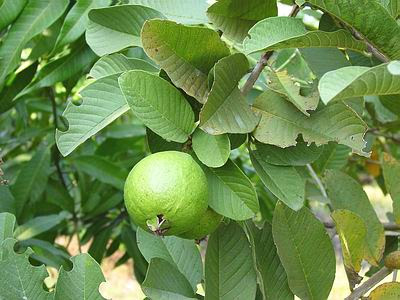Now, eat 37 strawberries a day to keep a fleet of docs away!
Eating 37 strawberries a day could keep not just one doctor away, but an entire fleet of them, including neurologists, endocrinologists, and maybe even oncologists, according to a new study.
Researchers at the Salk Institute for Biological Studies have discovered that strawberries have multiple health benefits similar to blueberries and red wine - thanks to a naturally occurring flavonoid called fisetin.
They explain that fisetin, found most abundantly in strawberries and to a lesser extent in other fruits and vegetables, helps in combating diabetes and protecting neurons in the brain.
That fisetin can target multiple organs strongly suggests that a single drug could be used to mitigate numerous medical complications.
The researchers gave Akita mice, which are afflicted with unusually high blood sugar, a fisetin-high enriched diet, and the medical effects of diabetes were eased, according to the study, which also concluded that the neuron protective property of fisetin could help prevent Alzheimer's disease.
David Schubert, Ph.D., professor and head of the Cellular Neurobiology Laboratory and one of the manuscript's co-authors, and Pam Maher, Ph.D., senior staff scientist and corresponding author, evaluated effects of fisetin supplementation in Akita mice, a very robust model of type 1 diabetes, also called childhood onset diabetes.
Mice fed a fisetin-enriched diet remained diabetic, but acute kidney enlargement-or hypertrophy-seen in untreated mice was reversed, and high urine protein levels, a sure sign of kidney disease, fell.
Moreover, fisetin ingestion ameliorated anxiety-related behaviors seen in diabetic mice
The researchers observed that blood and brain levels of sugars affixed to proteins known as advanced glycation end-products-or AGEs-were reduced in fisetin-treated compared to untreated Akita mice.
Interestingly, excessively high AGE levels also correlate with inflammatory activity thought to promote some cancers.
To ingest fisetin levels equivalent to those fed Akita mice, Maher estimates that humans would have to eat 37 strawberries a day, assuming that strawberry fisetin is as readily metabolizable by humans as fisetin-spiked lab chow is by mice.
The study concluded that the neuron protective property of fisetin could help prevent Alzheimer's disease.
The results appear in the current issue of PLoS ONE. (ANI)
Source:- http://in.lifestyle.yahoo.com/now-eat-37-strawberries-day-keep-fleet-docs-065904644.html
Researchers at the Salk Institute for Biological Studies have discovered that strawberries have multiple health benefits similar to blueberries and red wine - thanks to a naturally occurring flavonoid called fisetin.
They explain that fisetin, found most abundantly in strawberries and to a lesser extent in other fruits and vegetables, helps in combating diabetes and protecting neurons in the brain.
That fisetin can target multiple organs strongly suggests that a single drug could be used to mitigate numerous medical complications.
The researchers gave Akita mice, which are afflicted with unusually high blood sugar, a fisetin-high enriched diet, and the medical effects of diabetes were eased, according to the study, which also concluded that the neuron protective property of fisetin could help prevent Alzheimer's disease.
David Schubert, Ph.D., professor and head of the Cellular Neurobiology Laboratory and one of the manuscript's co-authors, and Pam Maher, Ph.D., senior staff scientist and corresponding author, evaluated effects of fisetin supplementation in Akita mice, a very robust model of type 1 diabetes, also called childhood onset diabetes.
Mice fed a fisetin-enriched diet remained diabetic, but acute kidney enlargement-or hypertrophy-seen in untreated mice was reversed, and high urine protein levels, a sure sign of kidney disease, fell.
Moreover, fisetin ingestion ameliorated anxiety-related behaviors seen in diabetic mice
The researchers observed that blood and brain levels of sugars affixed to proteins known as advanced glycation end-products-or AGEs-were reduced in fisetin-treated compared to untreated Akita mice.
Interestingly, excessively high AGE levels also correlate with inflammatory activity thought to promote some cancers.
To ingest fisetin levels equivalent to those fed Akita mice, Maher estimates that humans would have to eat 37 strawberries a day, assuming that strawberry fisetin is as readily metabolizable by humans as fisetin-spiked lab chow is by mice.
The study concluded that the neuron protective property of fisetin could help prevent Alzheimer's disease.
The results appear in the current issue of PLoS ONE. (ANI)
Source:- http://in.lifestyle.yahoo.com/now-eat-37-strawberries-day-keep-fleet-docs-065904644.html









Comments
Post a Comment